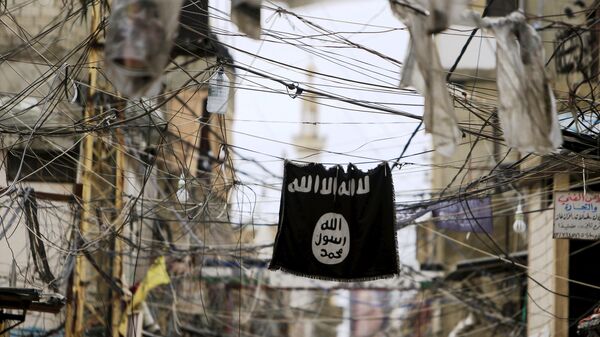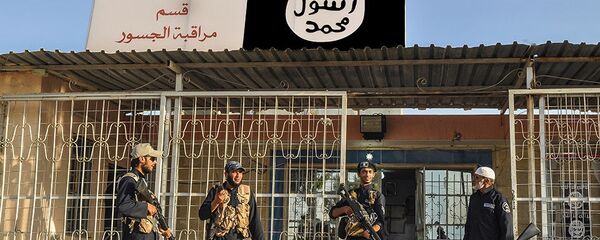Speaking to Sputnik in an interview, Dahiya, an expert in India’s and West Asia’s security affairs, said that to put it simply, Daesh is now fighting for survival.
“Now what they are saying to Indian jihadists is ‘Hey, I give you a bow.’ This is counter to earlier reports of Daesh not valuing any of the Indian fighters who have gone there,” said Dahiya.
Daesh has recently released a 22-minute video in Arabic threatening to carry out Islamist attacks in the Indian sub-continent. Though there have been mentions about India and South Asia in earlier propaganda materials, this is the first time a fully-fledged video has been dedicated to the country, which has a right-wing government in power.
In the menacingly threatening footage, one of the jihadist recruits from India warns, “We will return, but with a sword in hand, to slice your throats, to avenge the Babri Masjid, and the killings of Muslims in Kashmir, in Gujarat, and in Muzaffarnagar.”
In a further attempt to fuel religious tensions in the country by stoking the sentiments of Indian Muslims, another jihadist militant says in the video, “Hindus are striving to convert you Muslims to their faith. Have you forgotten the Bombay train blasts, have you forgotten Gujarat, have you forgotten Delhi. We will avenge everything.”
The video chillingly concludes its warning, “Either join us or be slaughtered.”
Nine Indians appeared in the propaganda video and of them only a handful of them have been identified by Indian intelligence agencies. Law enforcement forces are scrambling to pin down the identities of the remaining jihadists.
Meanwhile, as the government is being pushed to deal with the situation, Dahiya also suggests two main techniques – de-radicalization and counter-radicalization – must be carried out as a priority. He argues India, being an aspiring nation, needs more of the de-radicalization measures, requiring a softer touch.
He said: “There can be Indian individuals who could be radicalized by the group, sometimes influenced by the feeling of revenge or even thrill-seeking. But, I don’t think this will influence the larger society or the entire Muslim community. This can be controlled, I think.”



